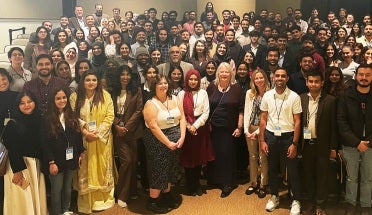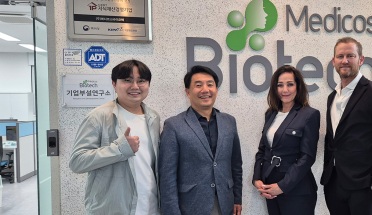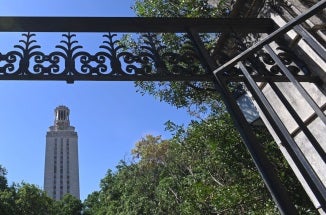
Young Leaders of the World Hone Entrepreneur Skills on the Forty Acres
- Aug 9, 2022
- Global Customized Programs
- by Alex Briseño
When Longhorns leave the Forty Acres at the close of each academic year, they might not know they’re making way for new groups of young learners and leaders. Bringing optimism and vision from around the world, the travelers seek skills and connections that can help them build social and economic enterprises to strengthen their communities at home.
Each summer, The University of Texas at Austin hosts hundreds of emerging entrepreneurs from across the globe in region-specific “Young Leaders” programs, sponsored by the U.S. Department of State’s Bureau of Educational and Cultural Affairs. The aim is to enhance leadership and business skills and foster opportunities for connection between international colleagues.
Each competitive program targets a specific geographical region, immersing participants in a combination of academic coursework, leadership development and training, community service and cultural programming, with professional placements that support mentoring and networking.
The Global Customized Programs unit at Texas Global partners with international education organizations and government agencies to design education and training programs that equip and challenge students, emerging leaders and motivated professionals to expand their perspectives and find new ways to effect change in an interconnected world.
Texas Global is pleased to offer the stories of three exemplary young leaders who visited Austin this summer—one each from the Young Leaders of the Americas Initiative (YLAI), Mandela Washington Fellowship for Young African Leaders Initiative (MWF-YALI) and Young Southeast Asian Leaders Initiative (YSEALI). Each came with brightly defined goals and took back with them edifying experiences and skills to help them solve challenges and transform their communities, countries and lives.
- Young Leaders of the Americas Initiative
Honduran Entrepreneur and YLAI Fellow Creates App to Revolutionize Business
by Bia Silva and Alexa K. Haverlah
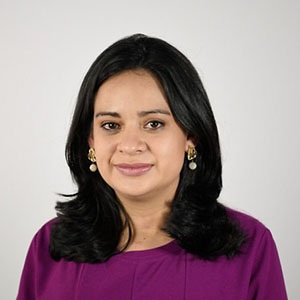
Marlene Calderón started a promising career by studying civil engineering in Tegucigalpa, Honduras. But when she tried to get a job in the field, she was told that as a woman, she couldn’t.
“They told me, ‘You won’t be respected. You won’t be treated as a professional,’ ” Calderón recalled.
But being told “No” didn’t stop her. Instead, the dismissals spurred Calderón to create a specialized software application that stands to revolutionize her industry.
Training, Resources and Networking
A crucial step on Calderón’s path was applying to the prestigious Young Leaders of the Americas Initiative (YLAI), a fellowship program launched in 2015 by the Obama administration and funded by the U.S. Department of State’s Bureau of Educational and Cultural Affairs.
Implemented by the International Research & Exchanges Board (IREX), this flagship program for emerging business leaders from the Western Hemisphere empowers entrepreneurs ages 25-35 from Latin America, the Caribbean and Canada to launch and advance ventures that contribute to social and economic development in their home countries.
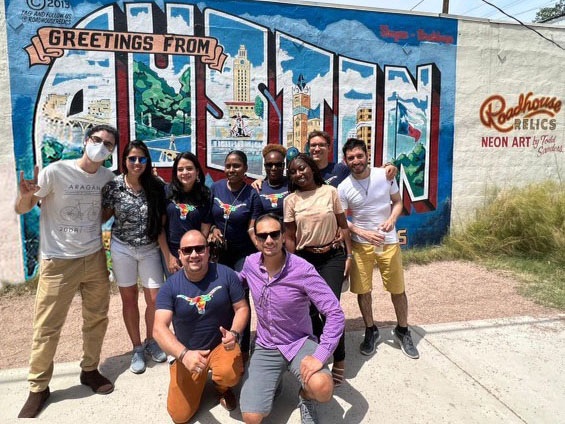
The University of Texas at Austin has served as a Cohort Ambassador, hosting six groups of YLAI participants since 2016. This year, 11 Fellows including Calderón came to Austin for four weeks of the program’s five-week duration.
Each Fellow arrives with a specific business challenge in mind, then receives targeted training, resources and guidance to help solve it. Financing the development of her app was Calderón’s main challenge.
She benefited from personalized feedback from Joy Patterson, program manager for Dell Technologies. During her professional placement with the Dell Women’s Entrepreneur Network, Calderón learned about implementing financial incentives for clients.
“Business in the U.S. is so different than in Honduras,” she said. “It’s what we’re aiming to be in the future—but we’re not there yet.”
Devising Solutions for the Field
A stint with the Honduran government showed Calderón the restrictions of the country’s public transport system. Freight trucking companies make up much of the industry but lack government support—and without it, the necessary funds and clientele to keep operating.
In 2019, as project manager at a private company, Calderón opened discussions with trucking companies. They identified their primary obstacles as a lack of communication with clients and difficulty in marketing effectively. Software could solve those problems, Calderón realized.
“We found they needed a service page with live-action planning to connect them to people who needed their services,” she said. “They liked that idea, and we started to develop an app.”
Calderón named the app Rolo. Similar to uShip, Rolo connects people who need goods moved (anything from refrigerated produce to cement) with people who move goods, allowing users to negotiate price via a secure bidding system.
Making Worthwhile Sacrifices
After completing the YLAI program, Calderón said she would return to Honduras more confident in her financing approach and herself as a female leader in business.
“I have lost a lot of fear here. Sometimes you can feel really small, but this program has ... given me the empowerment to grow as an entrepreneur.” She smiled, adding, “We have a female president who aims to empower women in the same way. I’m hoping over the next four years, the perspective in my country will change.”
As app development continues, Calderón has big plans for Rolo. She intends to capitalize on Honduras’ geographical placement at the heart of Central America to serve as a bridge between neighboring countries.
“We don’t just aim for Honduras,” she said. “We’ll go step by step and eventually expand to all of Central America.”
As the program closed, Calderón anticipated reuniting with her toddler, whom she had to leave in Honduras during the program. Even after making this difficult sacrifice, she encouraged anyone to apply to YLAI, despite what they might have to give up.
“The value I gained was worth stepping away from my life in Honduras,” Calderón said. “Even if it’s five weeks away from everything you have, it’s worth it.”
- Mandela Washington Fellowship for Young African Leaders Initiative
South African Social Entrepreneur and MWF-YALI Fellow Believes Music is Key to Peacebuilding
by Alexa K. Haverlah
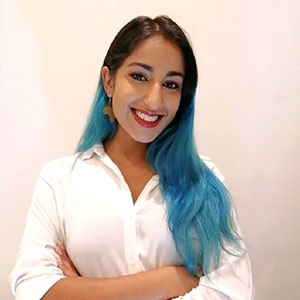
At age 12, Kiara Ramklass fell in love with the marimba, a deep-sounding, African instrument in the xylophone family. During high school, she started a marimba band as a community outreach program, developing it over 10 years into a social enterprise called Marimba Jam. The goal is to improve education inequality in her home country of South Africa by increasing access to free music education programs for children in under-resourced schools.
Ramklass, now 27, is passionate about offering every child the benefits of an education in African music. “I truly believe in the power of music as a tool for peacebuilding,” she said.
Participating in a Legacy
Ramklass wanted to augment her professional skills to propel her enterprise further, so she applied to the Business and Entrepreneurship Institute offered by the Mandela Washington Fellowship (MWF) for Young African Leaders.
The fellowship, funded by the U.S. Department of State, is a flagship program of the Young African Leaders Initiative (YALI), the most prestigious worldwide program for African innovators and emerging entrepreneurs.
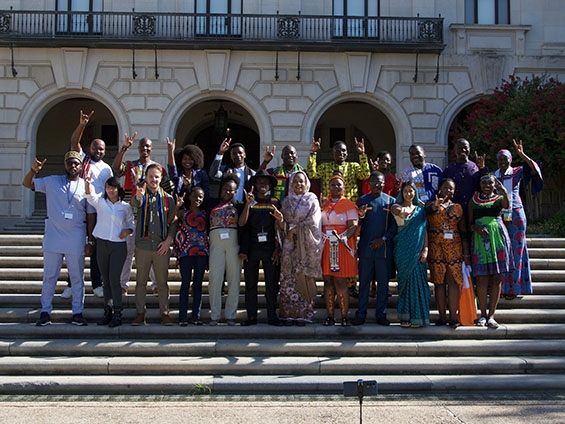
Since 2014, The University of Texas at Austin has been one of 26 institutions in the United States to host MWF-YALI participants from across Africa. The university partners with the International Research & Exchanges Board (IREX) to administer the program, and Senior Lecturer John Doggett in the McCombs School of Business serves as academic director.
Ramklass is among this year’s cohort of 22 Fellows representing 16 African nations. Over six weeks, they complete rigorous academic coursework, leadership training, networking exercises, community service activities and cultural excursions.
“I wanted to become a better version of myself, to be a leader to my 25 employees,” Ramklass said of her participation in the program.
Collaboration, Connection Informing Ambition
After completing the fellowship, Ramklass returned to South Africa with a broadened global perspective, complemented by deep connections with her cohort.
Citing the need for collaboration to build a strong, sustainable and inclusive foundation for Africa’s future, she also incorporated the concept of ubuntu. From a Zulu word that translates as “humanity,” this African philosophy carries the connotation of “I am because you are.”
MWF-YALI participants embody this conception of community, Ramklass said, with its aim to uplift as many people as possible. The Fellows are eager to stay in touch and collaborate; many have exchanged invitations and promises to visit one another.
Another trait the Fellows share is ambition. In her application bio, Ramklass wrote that she “hoped to establish partnerships with the private sector, local government and others to fund Marimba Jam [programs] in all of South Africa’s major cities.”
However, after turning the MWF-YALI Fellows into friends and colleagues, her sights are now set even higher: Ramklass plans to grow Marimba Jam throughout the African continent.
Advice to Future Applicants: Persevere
Ramklass worked hard to gain access to MWF-YALI's network of like-minded dreamers and doers. The first time she applied, she was selected as an alternate. She tried again and was accepted the following year.
With an acceptance rate of just 1 percent, admission to the Mandela Washington Fellowship is even more selective than to Harvard University.
“Some people have to apply four times,” Ramklass said. “Whether or not you make it on the first try, though, the application process helps you grow.”
As an example of the program’s prestigious legacy, Ramklass referenced MWF-YALI alumna and bright mind Mbali Ntuli, who is running to become the first female president of South Africa.
“When you do make it, it’s a foot in the door,” Ramklass concluded. “Now you’re amongst some of the brightest minds on the continent. In 20-30 years, the people going through this program will be the leaders of African countries.”
- Young Southeast Asian Leaders Initiative
Microbusiness Runs in the Family for Filipino Entrepreneur and YSEALI Fellow
by Alex Briseño
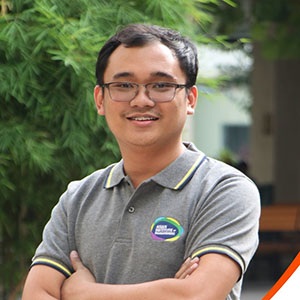
Growing up in the Philippines, Patrick Manuel was raised by a family of entrepreneurs.
His father and grandmother owned a sari-sari store, which Manuel describes as a corner store offering retail items at reduced prices. With affordability in mind, his family sold items such as olive oil in small packets rather than large bottles. Manuel also remembers his mother working as a street food vendor outside his elementary school.
“My whole educational background at home was built by microentrepreneurs,” said Manuel. “That's why I see how significant microentrepreneurs are, especially in a third-world country like the Philippines, where not everyone is granted an educational opportunity. You really have to find ways to sustain your everyday life and … send your children to school.”
During his studies at Far Eastern University in Manila, Manuel spotted a line of vendors with food carts outside the school. Many worked without business or health permits, he noted, making them vulnerable.
“Because these street vendors were illegally vending, they were displaced by the city government,” said Manuel. “Their food carts ... were not only confiscated but also demolished.”
Speaking with these vendors, Manuel learned that most were senior citizens, many of whom provided the primary source of income for their families.
“It's really important for them to do their business on the streets because their grandchildren or even their children depend on the income from the food business,” said Manuel. “That resonated with me because ... I saw my mother in those displaced street vendors.”
Taking Action for Microentrepreneurs
The incident stayed with Manuel. After founding his university’s Entrepreneurship Club, he began assembling a program for microentrepreneurs such as street vendors, with lessons on marketing, accounting, food preparation and securing sales permits.
The pandemic postponed implementing the program. Manuel pivoted, organizing the Pantawid COVID Project, a youth-led initiative that provided food packs to street vendors, public utility vehicle drivers and other vulnerable groups.
Manuel simultaneously came across an enticing opportunity with the Young Southeast Asian Leaders Initiative (YSEALI). Envisioning greater possibilities, he used the microentrepreneur project as his entry for the application.
Developing Skills to Expand Possibilities
A signature program of the U.S. State Department, YSEALI strengthens leadership across the Association of Southeast Asian Nations (ASEAN), deepens engagement among young leaders on regional and global challenges, bolstering ties between the United States and Southeast Asia.
Manuel was accepted into the Spring 2021 program, although the continuing pandemic prevented participants from traveling to The University of Texas at Austin. Instead, Texas Global offered a seven-week virtual fellowship in partnership with the University of Connecticut.
For the 20 entrepreneurs from 11 countries, courses focused on leadership and diversity, social enterprises, U.S. society and culture, business sustainability and economic development.
Commonalities Inspiring Change
After completing the virtual program last spring, the YSEALI Fellows were offered a chance to travel to UT Austin for an additional two-week study tour in June 2022. It would be Manuel’s first trip to the U.S.
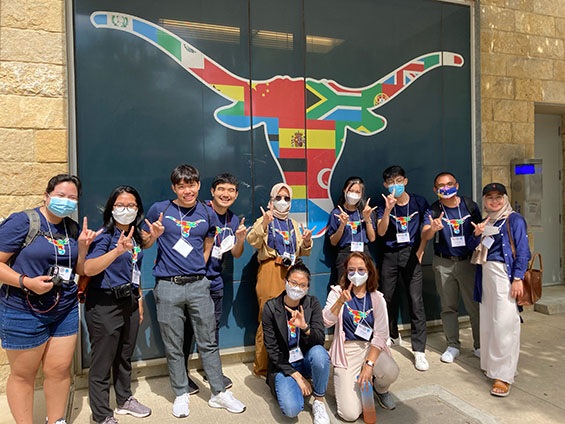
When the Fellows pitched their projects in person, Manuel loved sharing and discussing his vision with the other young, accomplished leaders. Witnessing their pitches inspired him, he said, especially as he learned of all they shared.
“Other [Fellows’] social enterprises focused on waste management, public transportation, inclusivity, mental health and senior care, so you really get to appreciate the fact that societal issues in your country are also present in other countries,” said Manuel.
“What’s more interesting is how these young leaders worked to be part of the solution,” he added.
As Manuel returned to the Philippines, ready to implement his microentrepreneur program, he shared a final observation, along with gratitude for the opportunity that made it all possible: “[T]here are a lot of great people in Asian countries who, if given a proper opportunity or platform, can create waves of change—which is something I am really grateful to the U.S. Department of State and UT Austin for providing,” said Manuel.
“They empowered us to be the next leaders in our respective communities and countries by giving us a once-in-a-lifetime opportunity.”


